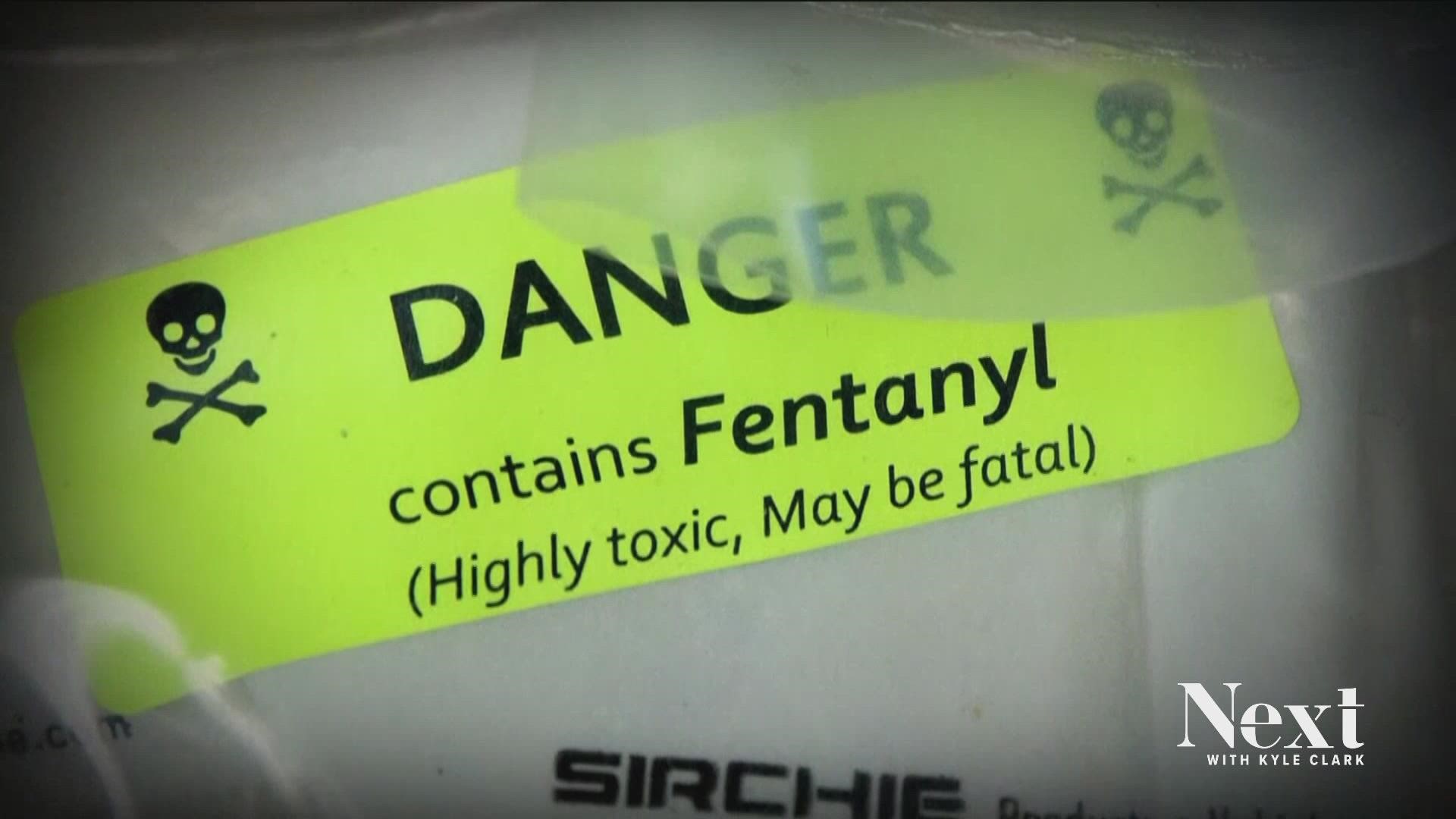DENVER — Lawmakers debated into the night about how to address fentanyl in Colorado. The bill they decided on is now headed to Democratic Gov. Jared Polis.
House Speaker Alec Garnett (D), a bill sponsor, said the legislation focuses on drug dealers, education and resources to get fentanyl off the streets.
It also addresses criminal charges for people in possession of drugs laced with fentanyl. Law enforcement has long warned that fentanyl is laced into other drugs and counterfeit pills all the time.
Garnett said there are protections in place in cases like that.
"Trying to take in consideration rare circumstances where somebody didn't know fentanyl was in their substance, they have the opportunity in court to present evidence and to have a jury of their peers determine if they were mistaken," Garnett said.
After debate over the legislation lasted late into Wednesday night, the final version of the bill allows people to try to get the felony charge reduced to a misdemeanor at trial, though Garnett said most cases might not make it to trial.
"Most low level drug possession cases don't make it all the way to court," he added. "The [district attorney's] going to plead down to something, work on going to diversion work with the dependent. Very rarely are you making it all the way to trial."
Garnett said its up to the prosecutors' discretion to work with people in those situations.
Denise Maes, a public policy analyst with the advocacy organization Servicios Sigue, agreed on one point with Garnett.
"I do think Speaker Garnett is probably accurate in that very many folks won't go to trial," she said.
It's also a point for concern for some advocates.
"I do think they will be arrested and charged," said Maes. "It's a big net and it's going to sweep up a lot of folks."
She said this part of the bill is opposite of a lot of testimony.
"The overwhelming data and testimony said don't felonize, and do harm reduction alone," said Maes.
"There are two folks who use fentanyl, they do it unknowingly and people who are addicted to it," said Maes. "Really, you are putting extra on addiction. How is that going to work?"
Garnett was adamant they are not trying to stop recreational drug use or punish people for addiction, but adapt to how deadly fentanyl is.
"This is not a return to the war on drugs of the past, but a recognition of the deadliness of fentanyl," he said.
"Sounds awfully familiar to what we said about heroin, cocaine," Maes said. "Trust me there will be another drug that replaces fentanyl."
Right now, a lot of law enforcement are able to do field tests to determine if a substance has fentanyl. But this test doesn't say how much fentanyl is there.
There are state labs and Drug Enforcement Administration labs, as well.
The Colorado Bureau of Investigation said in a statement:
"Currently, the bill simply calls for the CBI to notify the Legislature when and if we obtain the capability to test for the quantity of fentanyl in a particular drug. The CBI's Forensic Services team will begin researching the requirements and costs of obtaining the necessary safety equipment, technology, and personnel for that type of testing, which is not currently being performed by any State laboratory in the nation as far as we know."
As for how that plays into determining who is charged, Rep Garnett said: "All the possession cut points are based on whether fentanyl is present. That's why the possession discussion has been so challenging. If my cocaine has four-gram felony limit, if I have three grams of it, that would be a misdemeanor under Colorado statue now. If I were [to] test it and there is fentanyl in it, because it's above a gram, that's now considered a felony. If there is any fentanyl in any compound whatever the majority is, because fentanyl is there it becomes a felony, because we have lowered the possession threshold to one gram."
SUGGESTED VIDEOS: Full Episodes of Next with Kyle Clark

